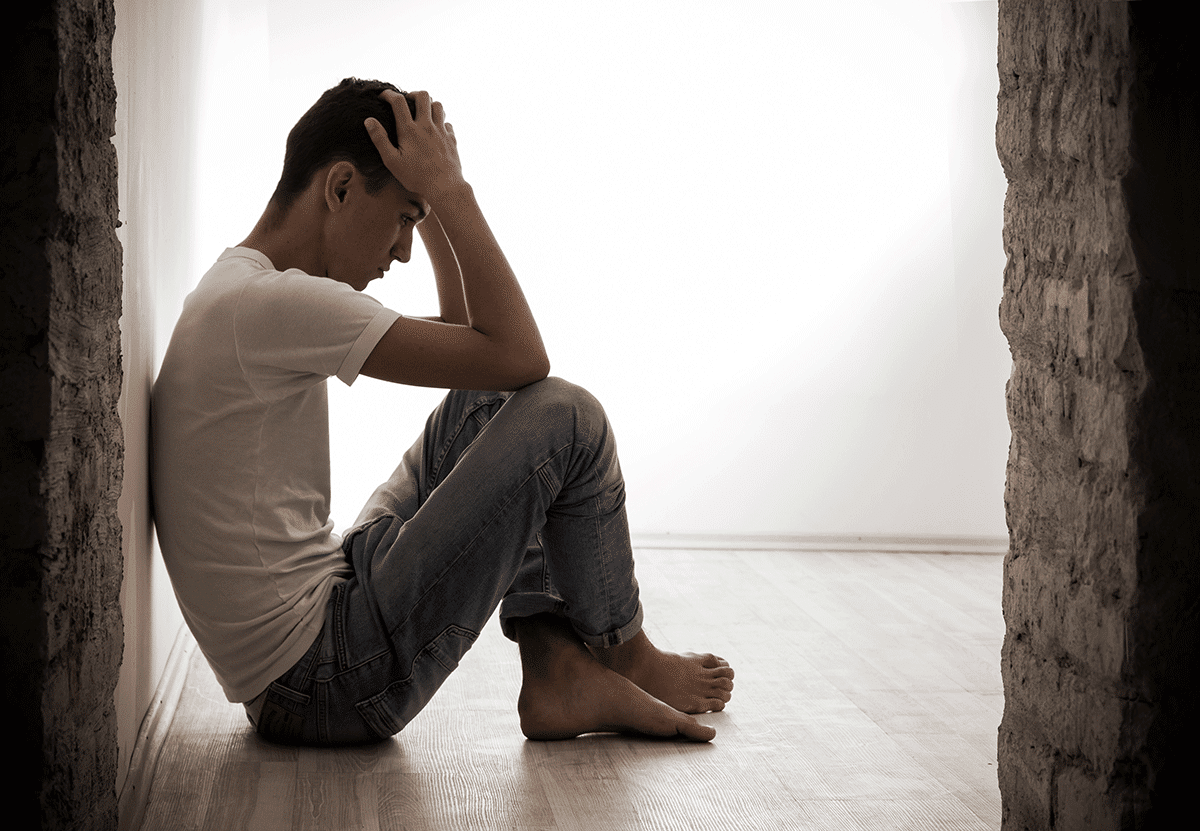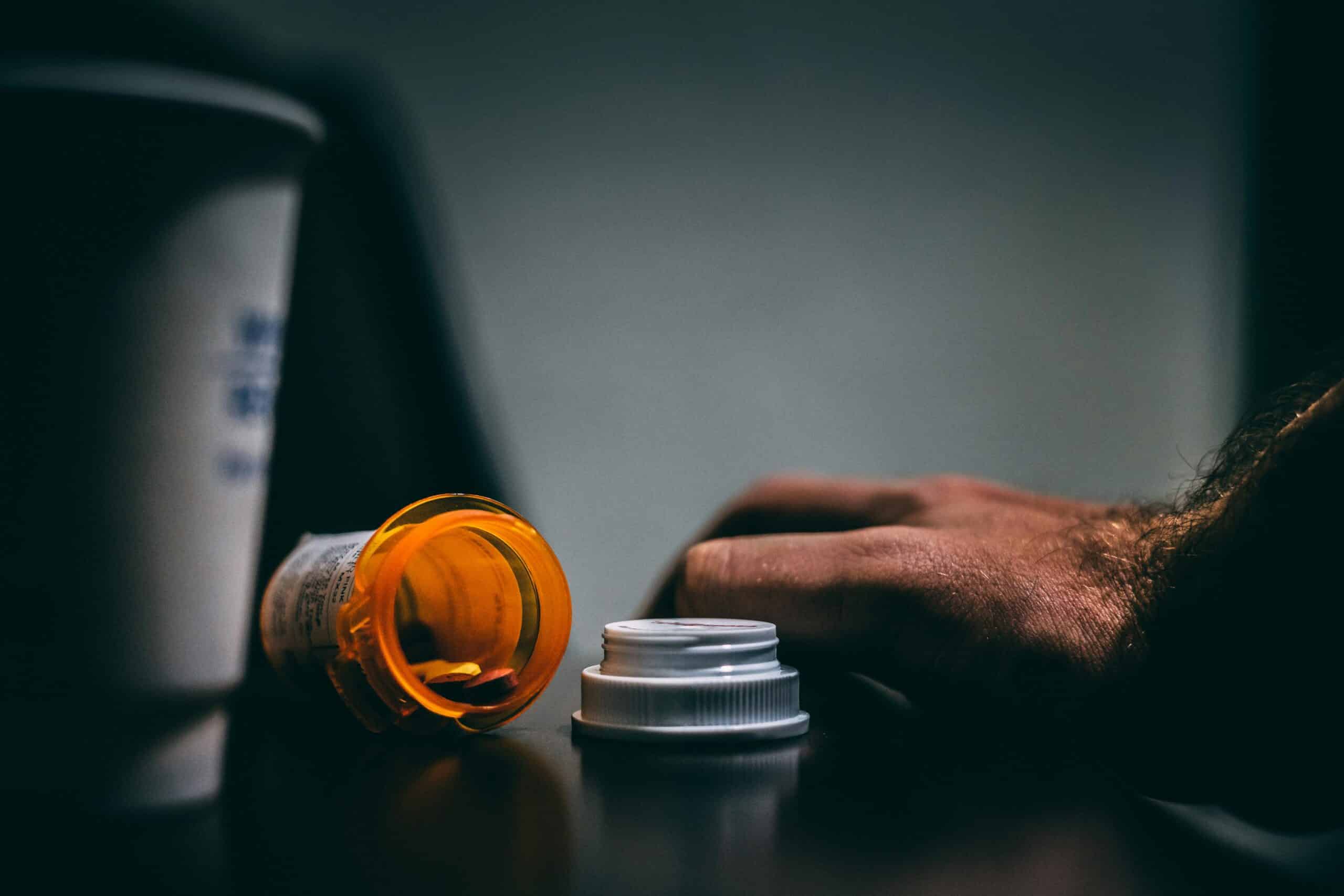It often starts with a prescription. Maybe for anxiety, panic attacks, or trouble sleeping. Medications like Xanax, Ativan, or Klonopin can feel like a lifeline in the beginning. But over time, what once offered relief can quietly become something a person depends on just to function.
If you’re here because you’re concerned about someone you care about, or even starting to wonder about your use, you’re not alone. Benzodiazepine addiction isn’t always obvious.
In fact, many people who struggle with it still go to work, take care of their families, and appear fine on the surface. That’s what can make it so hard to catch.
This guide will walk you through everything you need to know about benzodiazepine addiction, what makes it so risky, the signs and symptoms to look out for, and treatment options.
What Are Benzodiazepines?
Benzodiazepines are medications that calm the brain and nervous system. They’re often prescribed for anxiety, panic attacks, muscle spasms, or trouble sleeping. When used short-term and as directed, they can be helpful, but they also carry a high risk for dependence if taken regularly.
Types of Benzodiazepines
Some of the most commonly prescribed include:
- Xanax (alprazolam): For anxiety and panic
- Ativan (lorazepam): For anxiety or sleep issues
- Klonopin (clonazepam): For panic or seizures
- Valium (diazepam): For muscle spasms or withdrawal
- Librium (chlordiazepoxide): For alcohol withdrawal
- Restoril (temazepam): For short-term insomnia
- Halcion (triazolam): For severe sleep problems
Even with a prescription, these drugs can become a problem if used for too long or in higher doses.
How Do People Become Addicted to Benzodiazepines?
Most people don’t set out to misuse these medications. It often starts with a prescription. Over time, their body builds tolerance; they need more to feel the same effect. Eventually, they may take it just to feel normal.
This cycle can sneak up slowly, especially for people who:
- Use benzos to cope with stress or anxiety
- Take higher or more frequent doses than prescribed
- Mix them with alcohol or other drugs
Once dependence sets in, stopping suddenly can be difficult. That’s why getting the right support matters.
What Makes Benzodiazepine Abuse So Risky?
Benzodiazepines affect the central nervous system by slowing down brain activity. That calming effect can be helpful in the short term but dangerous over time.
The body adapts, and the brain starts to rely on the drug to function normally. When the drug isn’t there, the nervous system rebounds — fast.
Risk When Mixing With Other Substances
There’s also a risk of mixing. Many people who take benzos don’t realize how dangerous it can be to combine them with alcohol, opioids, or even certain sleep medications. These combinations can slow breathing to a dangerous level and increase the risk of overdose.
Long-Term Use
Long-term use can also backfire. People who originally took benzos for anxiety or insomnia may find those symptoms getting worse, not better. They may start taking more just to feel like themselves again. That cycle of relief, rebound, and repeat is where addiction often takes hold.
Why Benzodiazepine Addiction Can Be Hard to Spot
Most people don’t picture someone with a pill addiction as a high achiever or a busy parent. But benzodiazepines are commonly prescribed, and that prescription can create a false sense of safety. If a doctor gave it to you, it must be fine — right?
The truth is, benzodiazepines are meant for short-term use. Even when taken as directed, they can cause the brain to build tolerance quickly. That means the same dose stops working, so the person needs more to feel calm, relaxed, or able to sleep.
Over time, that pattern can shift into dependence. And because it happens gradually, it’s easy to miss.
Someone can be deeply struggling while still maintaining appearances. They might brush off concerns or believe they’ve got it under control. But when they try to stop or cut back, they feel worse, not better. That’s a red flag worth paying attention to.
Symptoms & Signs of Benzo Addiction
Benzodiazepine addiction doesn’t always look like what you’d expect. Instead of obvious signs, you might notice small shifts in behavior, personality, or physical health that slowly pile up. Here are some key areas to pay attention to:
1. Behavioral Changes
These are often the first signs loved ones notice. The person may seem different—not in a dramatic way, but in how they respond to stress, commitments, or social situations. You might hear them talk about needing their medication more often or see them take extra pills without a clear reason.
Things to look for:
- Taking more than the prescribed dose
- Running out of prescriptions early
- Withdrawing from family or friends
- Seeming agitated or on edge when the medication wears off
- Doctor shopping or visiting multiple providers to get more pills
2. Emotional and Mental Symptoms
Benzodiazepines can interfere with mood and memory, especially with long-term use. People may become forgetful, irritable, or emotionally flat. Anxiety might actually worsen between doses, creating a cycle that reinforces dependence.
Things to look for:
- Sudden mood swings or emotional numbness
- Difficulty concentrating or following conversations
- Worsening anxiety or panic between doses
- Memory problems, especially short-term
- Feeling “foggy” or mentally checked out
3. Physical Symptoms
Because benzos act on the nervous system, physical side effects are common. Some are subtle, like drowsiness or slurred speech. Others can mimic medical issues, such as muscle weakness or coordination problems. These symptoms often become more noticeable over time.
Things to look for:
- Unexplained drowsiness or sedation
- Slurred or slowed speech
- Clumsiness or frequent tripping
- Headaches or lightheadedness
- Nausea, blurred vision, or tremors
Benzodiazepine Addiction Treatment Options
Benzodiazepine addiction is treatable, and many people go on to recover fully with the right kind of help. The best treatment plan depends on the person’s history, how long they’ve been using, and whether they’re also dealing with mental health challenges like anxiety, trauma, or depression.
Here are some of the most effective options:
Medical Detox
This is often the first step. A supervised detox program can monitor vital signs, ease withdrawal symptoms, and make the process much safer and more comfortable. Detox also helps set the stage for long-term recovery by giving the person a clearer head and a stable foundation.
Inpatient Rehab
Benzodiazepine rehab provides structure, support, and therapy to help people rebuild without the drug. Inpatient treatment is more intensive and ideal for those with severe addiction, a history of relapse, or unsafe home environments. It offers a safe space to focus fully on recovery without outside distractions.
Addiction often thrives in chaos and unpredictability. A structured rehab program introduces a reliable daily routine that includes therapy, group sessions, meals, and free time. This structure helps reestablish a sense of order and normalcy, which is critical for healing and staying focused on recovery.
Outpatient Rehab
Outpatient programs are a good option for people who have a stable support system at home or who need more flexibility due to work or family responsibilities. They offer a high level of structured support that’s a step down from inpatient rehab, allowing you to return to your own home after completing your treatment for the day.
They’re also a valuable step down after inpatient care, helping people continue therapy and maintain progress while gradually reintegrating into daily life. This continuity of care can make a big difference in long-term recovery.
Dual Diagnosis Care
For many, benzodiazepine use is tied to underlying mental health issues. Dual diagnosis treatment addresses both at the same time. This approach is especially important for those who started taking benzos to cope with anxiety, PTSD, or other conditions that haven’t been fully treated.
Therapy and Ongoing Support
Long-term recovery usually involves more than detox and rehab. Ongoing therapy — whether individual, group, or family-based — can help address the deeper emotional patterns tied to benzo use.
Support groups like SMART Recovery or 12-step programs can also be helpful for staying accountable and connected.
Common types of therapy that support recovery include:
- Cognitive Behavioral Therapy (CBT): Helps people identify and change unhelpful thought patterns.
- Dialectical Behavior Therapy (DBT): Focuses on building emotional regulation and distress tolerance skills.
- Individual Therapy: Offers one-on-one support to explore personal triggers and build healthier coping strategies.
- Group Therapy: Provides connection and shared insight with others in recovery.
- Family Therapy: Helps rebuild trust and improve communication within the family system.
What Benzodiazepine Withdrawal Looks Like
If someone’s been taking benzodiazepines for a while—especially daily—their body gets used to having the drug in their system. When they try to stop or cut back, they might feel worse before they feel better.
This is a normal part of withdrawal, and it’s a sign that the body is adjusting and starting to function without the medication.
The good news is that with the right support, this process can be managed safely and with far less discomfort than many expect.
Early Symptoms
For many people, the first signs of withdrawal look a lot like the symptoms they started taking the medication for — restlessness, tension, or racing thoughts. This doesn’t mean things are getting worse. It just means the brain is recalibrating.
Common early symptoms include:
- Trouble sleeping
- Feeling jittery or on edge
- Upset stomach
- Headaches
- Mild mood swings
Why Tapering is Safer Than Stopping Cold Turkey
Quitting benzos suddenly can sometimes lead to more intense symptoms, including confusion, shakiness, or — in rare cases — seizures. That’s why medical professionals often recommend a slow taper, reducing the dose little by little under supervision.
This gradual approach helps:
- Prevent severe withdrawal symptoms
- Support mental and emotional stability
- Make the process feel more manageable
How Medical Detox Can Help
In a medical detox setting, people receive round-the-clock care to help them stay safe and comfortable. Staff can offer support, monitor progress, and make small adjustments as needed to ease symptoms.
Even if the person hasn’t been taking large doses, detox can still be a smart step. It creates space to start fresh, physically and emotionally, before moving into the next phase of treatment.
Start the Healing Process at Northpoint Recovery
Watching someone you love struggle with benzodiazepine use can be overwhelming. You want to help, but it’s hard to know what to say, when to speak up, or how to find the right kind of care.
At Northpoint Recovery, we offer safe, compassionate treatment for benzodiazepine addiction. From medical detox to therapy and long-term support, our team is here to help your family move forward.
Contact us today to learn how we can support you and your loved one.


